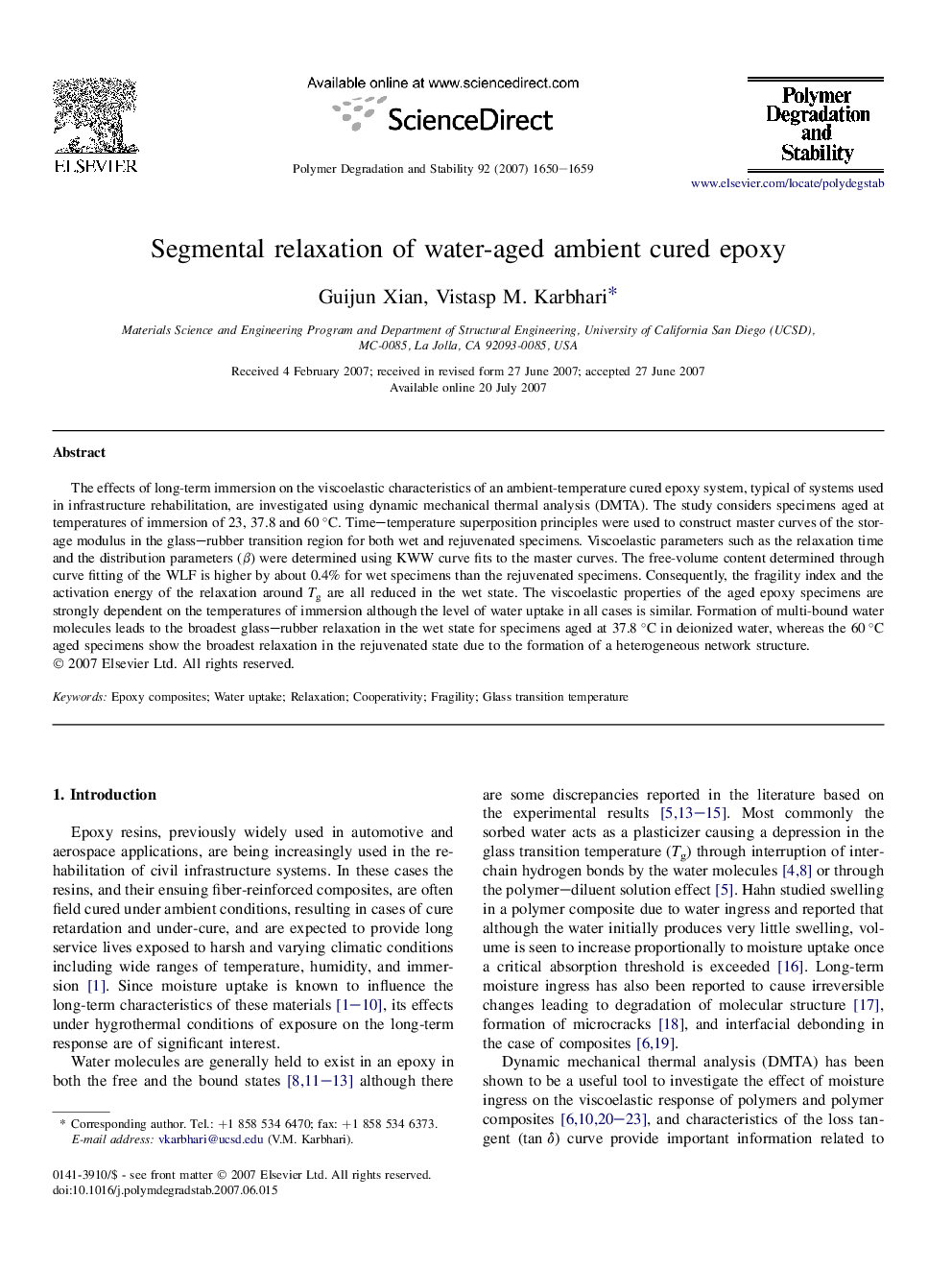| Article ID | Journal | Published Year | Pages | File Type |
|---|---|---|---|---|
| 5204990 | Polymer Degradation and Stability | 2007 | 10 Pages |
Abstract
The effects of long-term immersion on the viscoelastic characteristics of an ambient-temperature cured epoxy system, typical of systems used in infrastructure rehabilitation, are investigated using dynamic mechanical thermal analysis (DMTA). The study considers specimens aged at temperatures of immersion of 23, 37.8 and 60 °C. Time-temperature superposition principles were used to construct master curves of the storage modulus in the glass-rubber transition region for both wet and rejuvenated specimens. Viscoelastic parameters such as the relaxation time and the distribution parameters (β) were determined using KWW curve fits to the master curves. The free-volume content determined through curve fitting of the WLF is higher by about 0.4% for wet specimens than the rejuvenated specimens. Consequently, the fragility index and the activation energy of the relaxation around Tg are all reduced in the wet state. The viscoelastic properties of the aged epoxy specimens are strongly dependent on the temperatures of immersion although the level of water uptake in all cases is similar. Formation of multi-bound water molecules leads to the broadest glass-rubber relaxation in the wet state for specimens aged at 37.8 °C in deionized water, whereas the 60 °C aged specimens show the broadest relaxation in the rejuvenated state due to the formation of a heterogeneous network structure.
Related Topics
Physical Sciences and Engineering
Chemistry
Organic Chemistry
Authors
Guijun Xian, Vistasp M. Karbhari,
